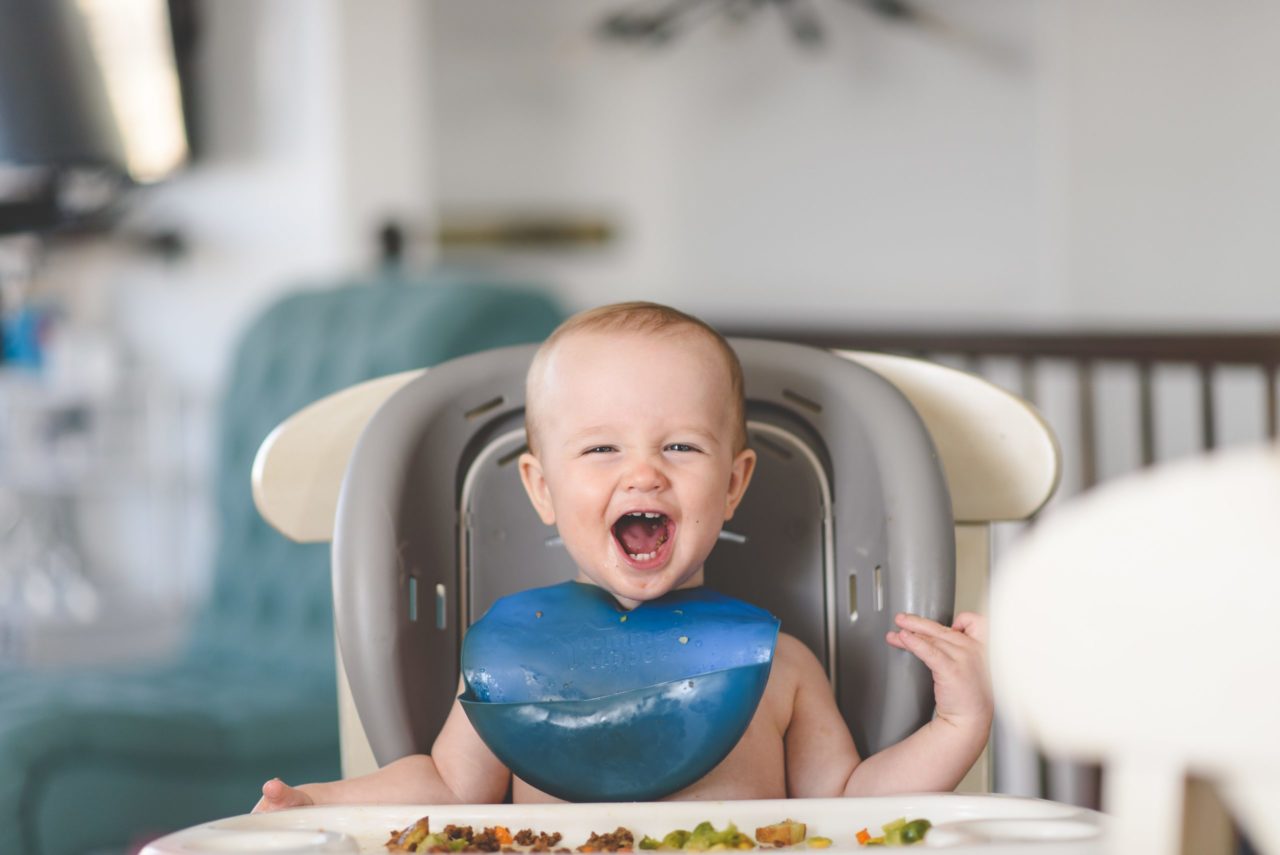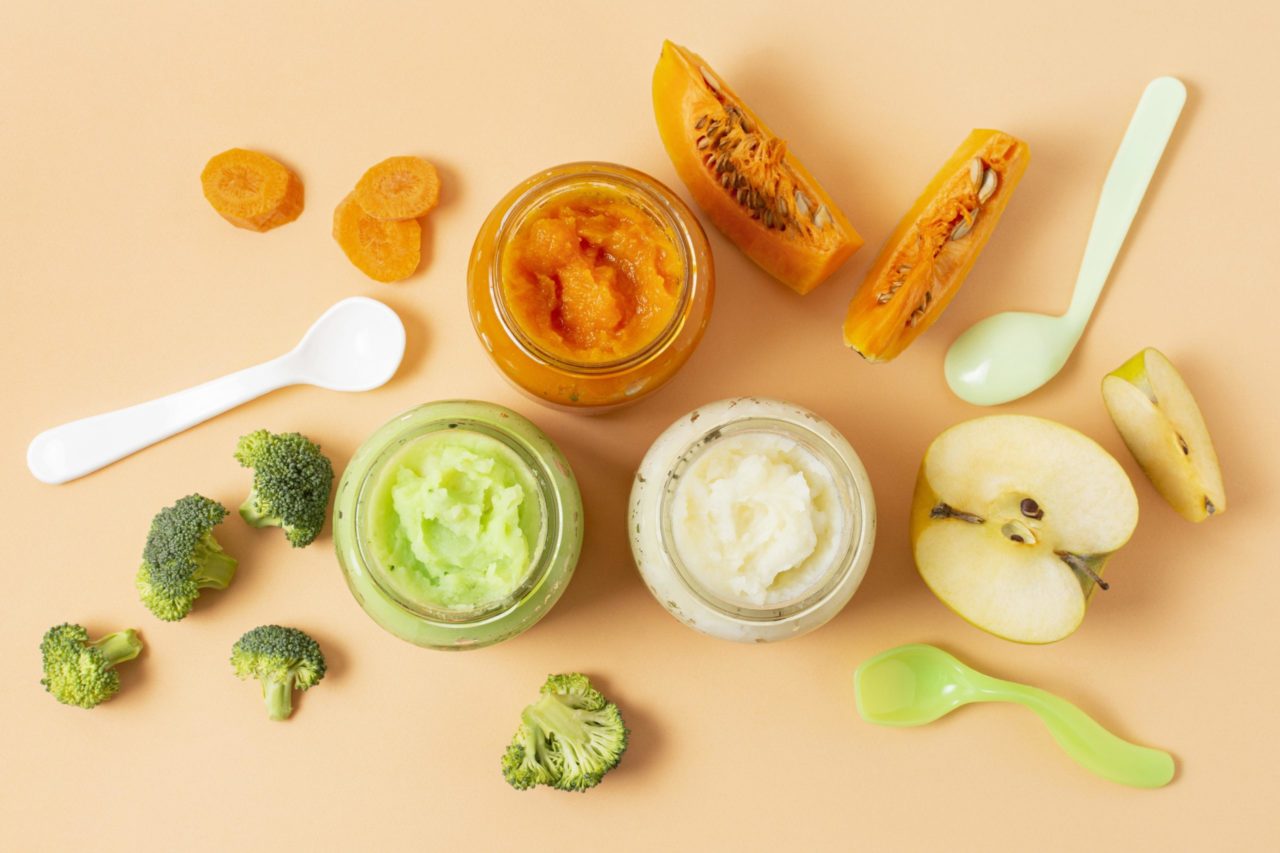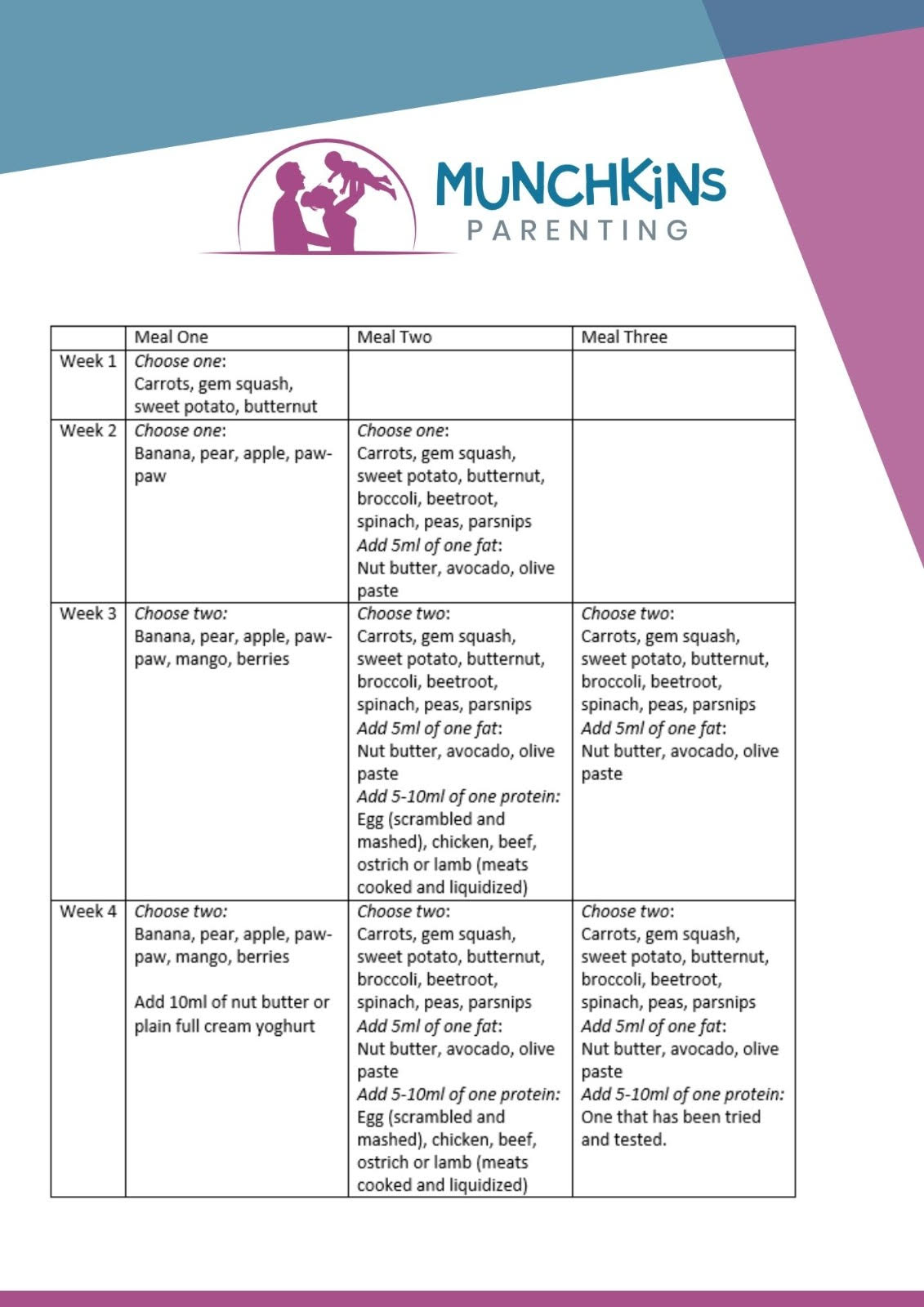
Just as you feel like you’ve got the milk feeds going smoothly, the art of nappy changing mastered and able to bath your baby like a pro, the next challenge arrives: SOLIDS! Eek! But don’t worry, we’ve got some no-brainer tools for you to make this a fun and magical experience. Cameras ready!
Paediatricians agree that babies can start solids any time between 17 weeks (4 and a half months) and 6 months (no later than 6 months though). When your baby is staring at you like a drooling puppy when you are trying to shovel down your lunch, your baby may be ready to start solids.
When deciding what to feed your baby, begin with the end in mind. You want a child that loves their veggies and healthy food. You don’t want a child that craves sweet things and won’t eat veggies unless they are well disguised and smothered in tomato sauce. So, while they are intrigued and excited about food, we begin with vegetables and don’t over-do the fruit (aka baby candy). Stay away from cereals at first because this is very contrary to the fat-rich, easy to digest milk that your baby’s gut is used to, and is likely to cause constipation. Introduce water as soon as you start solids, and don’t ever fall into the fruit juice or cooldrink trap.
 Before 6 months, we only give puree. Spend a morning with multiple pots on the go – steaming courgettes in the one pot, carrots in another, gem squash in another etc. while you’ve got some whole giant sweet potatoes and whole butternut cooking in the oven. Once cooked, blitz them with a blender individually until smooth and press into ice-cube trays. Freeze it and then pop it out into a zip-seal bag. Now, your freezer is stocked with a bag of frozen butternut puree cubes, a bag of frozen carrot puree cubes etc etc. At meal times you take out a block or two to defrost and warm up, and serve. I find that a glass jar inside an electric bottle warmer is the fastest and easiest way to do this. If your baby is under 6 months, they may still have the tongue-protrusion reflex where they stick their tongue out automatically when something goes into their mouth. If this is the case, hold the spoon still in their mouth so they can suck the food off.
Before 6 months, we only give puree. Spend a morning with multiple pots on the go – steaming courgettes in the one pot, carrots in another, gem squash in another etc. while you’ve got some whole giant sweet potatoes and whole butternut cooking in the oven. Once cooked, blitz them with a blender individually until smooth and press into ice-cube trays. Freeze it and then pop it out into a zip-seal bag. Now, your freezer is stocked with a bag of frozen butternut puree cubes, a bag of frozen carrot puree cubes etc etc. At meal times you take out a block or two to defrost and warm up, and serve. I find that a glass jar inside an electric bottle warmer is the fastest and easiest way to do this. If your baby is under 6 months, they may still have the tongue-protrusion reflex where they stick their tongue out automatically when something goes into their mouth. If this is the case, hold the spoon still in their mouth so they can suck the food off.
When your baby is able to sit up independently (at about 6 months old) it is time to start finger foods. Every time your baby is being fed puree, put 3-5 finger foods on their tray for them to play with, squish, smell and taste in their original form. This also gives them the opportunity to practice the very complex skill of biting, chewing and swallowing. (See here for ideas on finger foods for this stage.) Keep in mind that your baby will gag often in the beginning because they have an extremely strong gag reflex for the first 15 months of life. This is there to protect them from choking. Gagging is not choking. If there is sound, there is air flow. DON’T PANIC. Rather smile and say something like “Whoopsy, was that piece a little too big? Would you like some water?” Real choking is actually very unlikely thanks to this powerful reflex.
Your baby will also spit out the finger foods often in the beginning. That’s because they are still learning and developing the skill of keeping the food in their mouth. It takes time and practice. Why is this important? Well, between 10 and 14 months, babies tend to go on a “spoon strike”, where they will refuse to eat anything you dare to try feed them yourself – even if they love it! They will only eat what they can feed themselves. So, they need to be pros at self-feeding by 10 months so that it would be easy to switch them to a fully independent self-feeding regime the moment they decide to start pursing their lips and turning their heads away at the sight of a spoon. Otherwise you’ll be back to getting up multiple times a night to a hungry baby who isn’t getting enough in during the day.
The latest research shows that introducing previously taboo foods such as whole eggs, tree nut butters, peanut butters, fish etc earlier (between 5 and 7 months) actually reduces the chance of the child being allergic to them. If you are worried, try a very tiny smear on the bottom lip one morning. If there’s no swelling, try a quarter of a teaspoon in their food the next morning. If still no reaction, you should be totally safe. But keep baby allergy medication ready at home for peace of mind. However, it is essential that baby does not consume any honey before 12 months. This could be extremely dangerous.
Begin with one meal a day in the mornings and work your way up to 3 meals a day over 3-4 weeks. Each meal is between 15 and 30ml at this early stage. Do not reduce the amount of milk consumed because this is still the most important source of nutrition.






